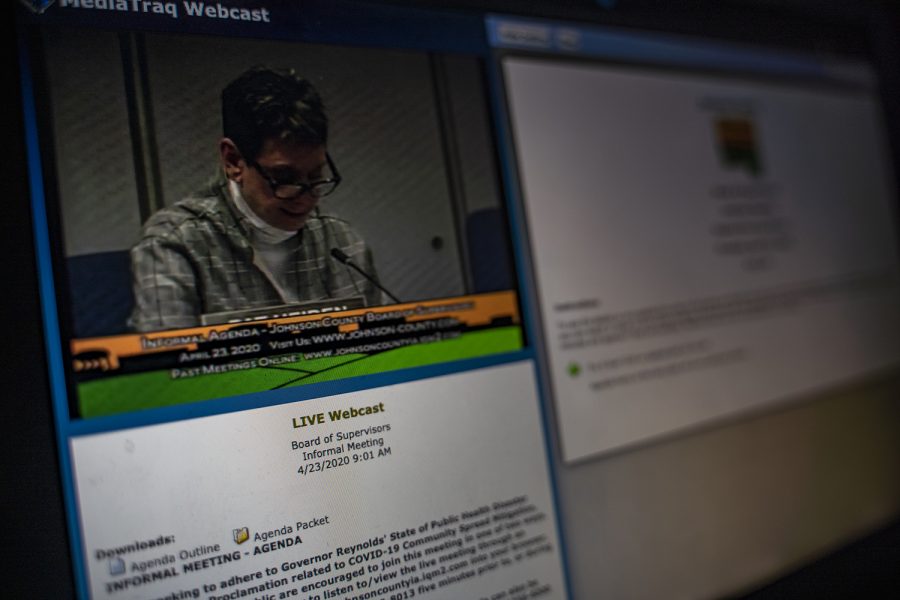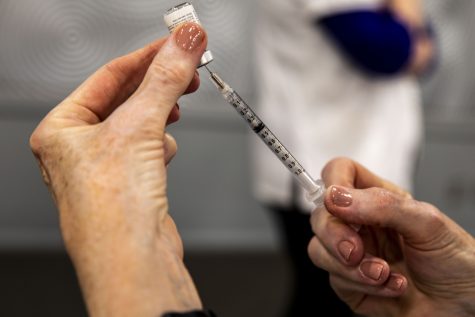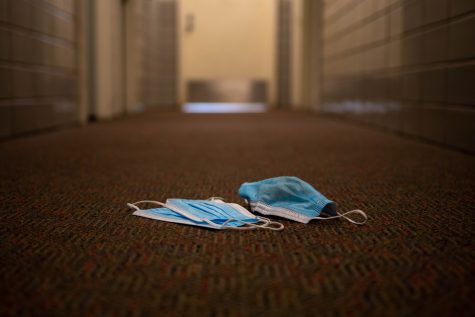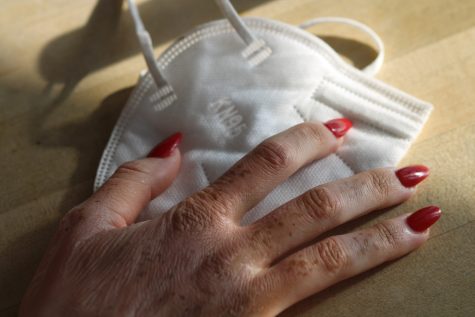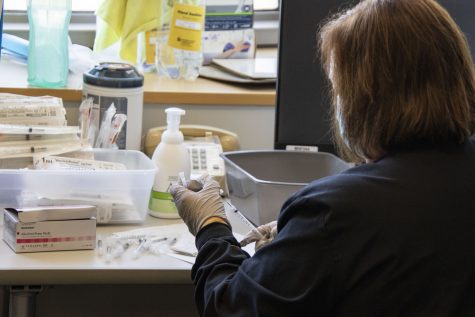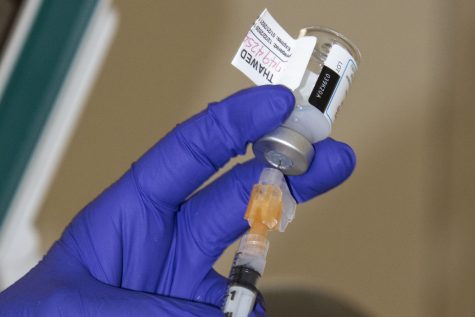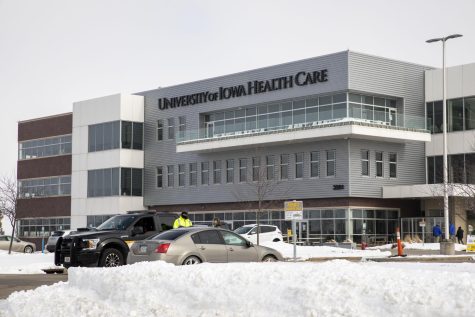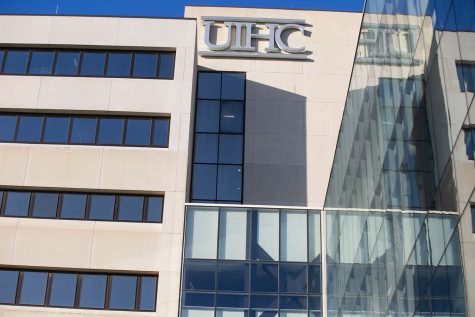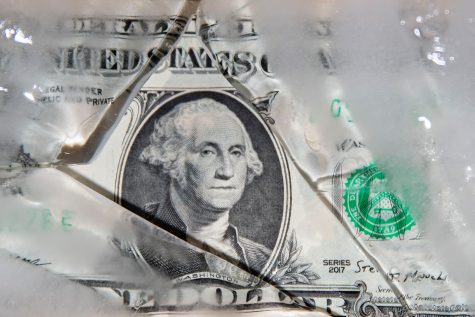Johnson County receives federal funding for health care relief
The Johnson County Board of Supervisors discussed unexpected federal, health-relief funding it received earlier this week at its Thursday meeting.
The Johnson County Board of Supervisors meeting is streamed online on Thursday, April 23, 2020.
April 23, 2020
One of the Johnson County treasurer’s accounts received what the treasurer called an unexpected deposit of $68,231.71 from the federal government to assist with county health care relief earlier this week.
The transmittal letter that accompanied the deposit specified that the money came from the Health and Human Services Department as a part of the CARES Act, which is providing national funding for COVID-19 relief and totals roughly $30 billion.
“This funding will be used to support health care-related expenses or lost revenue attributed to the coronavirus, and to ensure that uninsured Americans can get tested and the treatment they need without receiving a surprise bill from providers,” said Johnson County Finance Director Dana Aschenbrenner at a Johnson County Board of Supervisors meeting Thursday.
The county did not solicit the funding and is currently unaware if there are any stipulations in place as no terms and conditions on the money’s use were provided, he said.
RELATED: Trump approves major-disaster declaration for Iowa
Johnson County Board of Supervisors Executive Director Mike Hensch will sign the attestation that the county received the funding and the board anticipates that more information concerning the money’s use will be provided at that point in time.
The funding is not a loan and will not be expected to be repaid, Aschenbrenner said. Currently the county is tracking the money that is coming in for COVID-19 relief and has set up a unique revenue account to track this deposit as well as any other deposits that it may receive in the future, he said.
“[We believe] this money is linked to people who provide Medicare services and have been billed in the past. So, everybody gets a percentage based off their past Medicare billing,” Hensch said. “So, we believe it is related to ambulance billing.”



